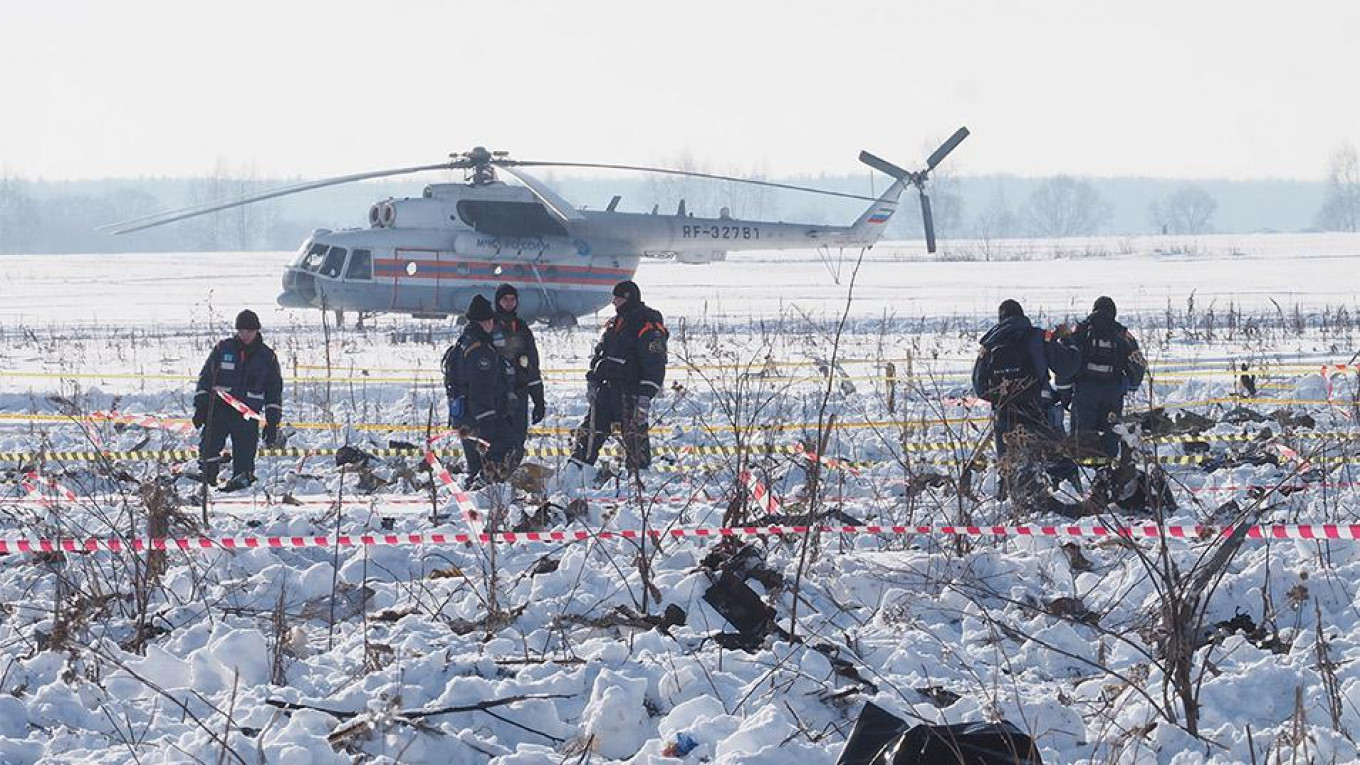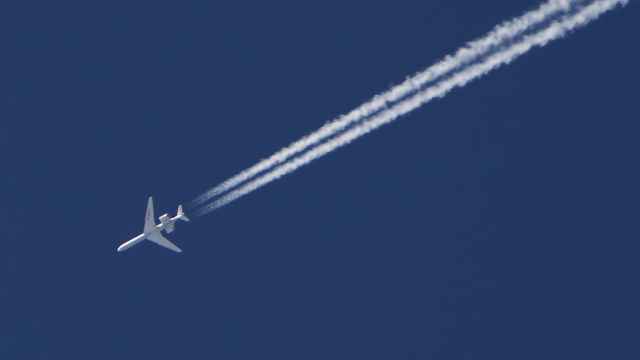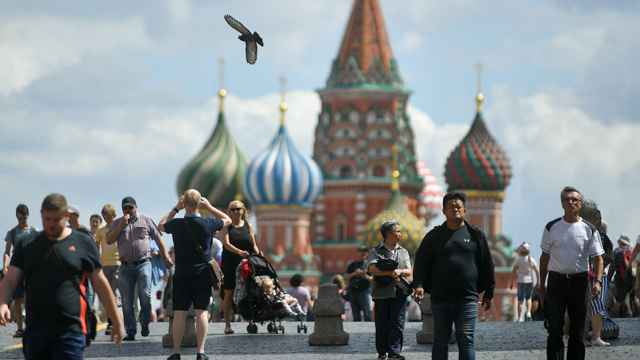The plane was in the air only five minutes before its steep fall began. Left dead were six crew members and 65 passengers, including three children and a Swiss national.
Flight 703 only made it 80 kilometers southeast of the capital after departing Domodedovo Airport on Sunday afternoon. Operated by Saratov Airlines, a regional carrier, the An-148 aircraft was headed for Orsk, a city in southern Russia between the country’s border with Kazakhstan and the southern tip of the Ural Mountains.
Sunday’s scenes were all too familiar for Russians: It was the third major civil airliner disaster in recent years.
Even though 2017 was reportedly the safest year yet in commercial passenger jet travel worldwide, the spate of crashes in Russia, experts say, will continue unless the country's civil aviation agencies are overhauled.
What caused the latest tragedy is only in the early stages of being pieced together.
Investigators said that they are exploring a wide range of possibilities, including poor plane maintenance, inclement weather and human error — though terrorism was ruled out quickly, with the Investigative Committee saying that the plane was intact before the crash.
Citing how far the wreckage was strewn, some experts, however, have said it is conceivable that the plane broke up midair.
New details reported on Tuesday afternoon have suggested pilot error. Russia’s Interstate Aviation Committee said that the plane’s pilots failed to turn on the heating unit for the plane’s pressure measurement equipment, which, in cold weather, resulted in incorrect speed data.
For air safety expert Alexander Romanov, uncertainty over what caused the crash belies “a much bigger issue” — the Russian government.
Romanov blasted the Kremlin for systematically shepherding officials — with little or no knowledge of air safety into top positions at Rosaviyatsia — Russia’s state aviation agency — and in the Transport Ministry.
“They are relatives of people in power, or those who are well connected,” he said.
Because experts do not occupy those seats, Romanov said, financial resources are often withheld or misdirected, safety management systems are not strictly followed and pilots are frequently allowed to work too many hours. “They are often over-tired,” he said.
And, when tragedies occur, officials are ill-equipped in responding to the loved ones left looking for answers.
In the aftermath of Sunday’s crash, a delayed response left relatives grasping for details.
When local journalist Olesya Kolpakova of the website Ural56.ru arrived at the Orsk airport soon after initial media reports surfaced, officials there told her that they did not have any information. Relatives already gathered there, Kolpakova recounted to Novaya Gazeta, were likewise kept in the dark.
One woman, Kolpakova said, shouted repeatedly, “Bring me back my brother!” And only after Emergency Situations Ministry workers had arrived on the scene to provide “psychological help” to the relatives, did the airport director confirm the crash had even occurred.
Meanwhile, a Moscow Times journalist on the scene at Domodedovo in Moscow, witnessed no sign of disruption. Perhaps because the crash was nothing new.
In recent years, FlyDubai’s Flight 737 crashed while attempting to land in poor weather at the Rostov-on-Don airport in March 2016, killing everyone on board. In October 2015, a charter flight returning tourists to St. Petersburg from an Egypt resort exploded mid-air, with all 224 people perishing. That tragedy was attributed to a terrorist attack.
In 2013, fifty people were killed when a regional carrier Tatarstan Airlines flight attempted to land at Kazan’s international airport. Most recently, a small plane crashed in Russia’s Far East in November, claiming the lives of all six people on board.
The An-148 airliner which crashed in the Moscow region was also involved in a fatal accident in 2011 when it broke up mid-air, killing six crew members during a test flight. In September and October, two of the planes had difficulties immediately after takeoff — an engine shutdown in one case, an engine fire in the other — but both were able to land safely.
Saratov Airlines has suspended the use of the plane until the cause of Sunday’s crash is determined.
In a phone interview this week, Aeroflot pilot Andrei Litvinov, like Romanov, the aviation expert, pointed to Russia’s civil aviation agencies. “If we don’t urgently deal with this problem, these tragedies will simply continue to happen,” he said.
Litvinov acknowledged that Russian aviation has improved since the collapse of the Soviet Union in 1991. Major airlines, like Aeroflot, he noted, have invested in Western airplanes.
But Litvinov also pointed to smaller regional airlines like Saratov Airlines which continue to be plagued by lack of funding and oversight.
“After every catastrophe, the aviation community hopes that all the various transport agencies will be incentivized to change something,” Litvinov said. “But after some time passes, all the fuss soon quiets down.”
“These are issues we’ve been talking about for 20 years and nothing has changed,” he added.
Still, Litvinov continues to hold out hope.
“With the presidential elections coming soon,” he said in reference to the March 18 vote, “maybe this issue will finally get enough attention.”
Reporting contributed by Masha Tsnompilantze
A Message from The Moscow Times:
Dear readers,
We are facing unprecedented challenges. Russia's Prosecutor General's Office has designated The Moscow Times as an "undesirable" organization, criminalizing our work and putting our staff at risk of prosecution. This follows our earlier unjust labeling as a "foreign agent."
These actions are direct attempts to silence independent journalism in Russia. The authorities claim our work "discredits the decisions of the Russian leadership." We see things differently: we strive to provide accurate, unbiased reporting on Russia.
We, the journalists of The Moscow Times, refuse to be silenced. But to continue our work, we need your help.
Your support, no matter how small, makes a world of difference. If you can, please support us monthly starting from just $2. It's quick to set up, and every contribution makes a significant impact.
By supporting The Moscow Times, you're defending open, independent journalism in the face of repression. Thank you for standing with us.
Remind me later.







